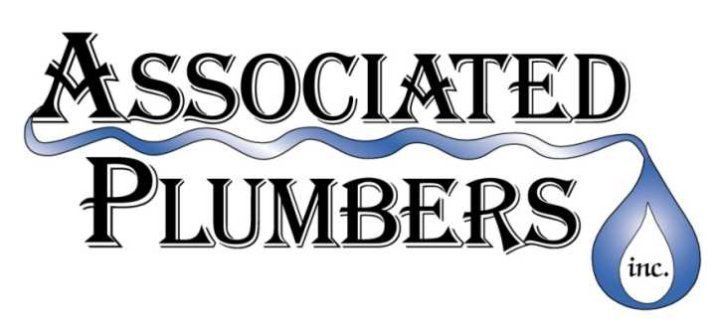Gas Lines
What To Do If You Smell Natural Gas
What to do if you smell natural gas
*Natural gas has a distinctive, strong odor, often compared to rotten eggs or sulfur.
- Step 1: Leave immediately on foot! Do not use electric switches, telephones (including cell phones), drive or start a car or anything that could cause a spark.
- Step 2: Go directly to a safe location, on foot, and call both Summit Energy and 911. Do not use e-mail or the Internet to contact the company about a leak, and never assume someone else has reported the leak.
- Step 3: Alert your neighbors. Summit Energy checks suspected natural gas leaks at no cost to you.
- Step 4: Never try to repair a natural gas leak yourself. Leave all repairs to a trained technician.
OUTSIDE your home or building:
- Step 1: Leave immediately on foot! Do not use electric switches, telephones (including cell phones), start or drive a car or anything that could cause a spark. Move in a upwind direction away from the leak or vapor cloud where you can no longer smell gas and maintain a safe distance.
- Step 2: Go directly to a safe location and call both Summit Energy and 911.
- Step 3: Warn others to stay away from the leak. Abandon any equipment being used in or near the area.
*Some persons may not be able to smell the odor because they have a diminished sense of smell, olfactory fatigue (normal, temporary inability to distinguish an odor after prolonged exposure to it) or because the odor is being masked or hidden by other odors that are present in the area, such as cooking smells or damp, musty, or chemical odors.
In addition, under certain rare circumstances, odor fade (the loss of odorant so that it is not readily detectable by smell) can occur. Odor fade is caused by physical and chemical processes. Other factors that may cause odor fade include: construction and configuration of the customer’s gas facilities; presence of rust, moisture, liquids, or other substances in the pipe; gas composition, pressure, and flow; intermittent, little, or no gas flow over an extended period that normally lasts until the gas flow increases or becomes more frequent; new pipe installations; steel and larger pipes; and certain types of dry soil.
-
Signs Of A Gas Leak
Identifying Gas Leaks in a Residential Setting
Minor gas leaks may not always exhibit a detectable odour or visible signs. Nevertheless, in a residential setting, persons could possibly detect a gas leak through the following indications:
The scent of sulfur or rotten eggs.
A discernible hissing or whistling sound in close proximity to a gas line.
The appearance of a white or dust-like cloud around the gas line.
Bubbling occurrences in water.
Visible damage to a gas pipe.
Death of houseplants.
In addition to the above, an abnormal surge in gas bills could signal a potential gas leak, as gas could potentially be diverting from the gas lines or utilities within the residence.
-
Carbon Monoxide Poisoning
Carbon monoxide (CO) poisoning potentially results in manifestations akin to gas leakage effects. Such CO emission usually occurs in cases of inchoate gas combustion.
The potential indicators related to carbon monoxide poisoning involve:
Abdominal discomfort
Pain in the chest area
Sensations of dizziness
Feelings of fatigue
Frequent headaches
Diminished muscular control
Nausea
Pinkish skin with bright red lips.
Death
-
Possible Symptoms Of A Gas Leak
A reduction in the amount of oxygen in the air causes gas leak symptoms. These can include:
breathing difficulties
dizziness
fatigue or drowsiness
feeling lightheaded
flu-like symptoms
headaches
irritation to the eyes and throat
mood changes, including depression
nausea
nosebleeds
pains in the chest
pale skin or blistering, following direct contact with gas
reduced appetite
ringing in the ears
Pets will likely also be experiencing symptoms in the event of a gas leak. Pet owners should look out for signs of:
breathing difficulties
changes in mood or behavior
disorientation
lethargy
loss of appetite
sore throat
red or watering eyes
vomiting
Very high levels of gas may cause unconsciousness or even death in pets.
-
-
Types of Gas Pipe
We will examine the three most widely utilized materials in gas line construction.
Black Iron
A lot of people like black iron when it comes to making gas pipes. It's pretty popular. You'll find that it's the go-to choice for more than a few contractors. They love it, not just because it is super strong and resists heat like a champion, but also because it fits together well with a compound that creates a sealed, airtight fit, making sure no sneaky gas bits slip out.
Corrugated Stainless Steel (CSST)
Thinking about gas piping options? Well, you might want to consider using CSST. It's super flexible, making it a great choice for those hard-to-reach, cramped spaces.
High-Density Polyethylene Piping (HDPE):
HDPE is very flexible, durable, and does not corrode. For underground use only.
-
Repair
-
Gas Meter Pull
Dealing with a Gas Leak?
Associated Plumbers Inc. is Here to Help!
If you are facing unfortunate circumstances such as removal or lockdown of your gas meter due to a leak, rest assured, Associated Plumbers Inc. is at your service.
We can:
Test your system
Obtain necessary permits
Identify the origin of the leak
Do necessary repairs or replacement of gas lines
Recognizing the significant risk that gas line issues pose, we go the extra mile. We facilitate the inspection of your gas line system by your local Plumbing Inspector to validate its safety.
Your safety and well being are of paramount importance to us at Associated Plumbers Inc. We strive to resolve your gas line concerns as expediently as possible.
We carry a legacy of over 75 years of delivering excellent plumbing services to Central Arkansas.
Trust us for a favorable and reliable resolution of your gas line problems.
-
Installation
